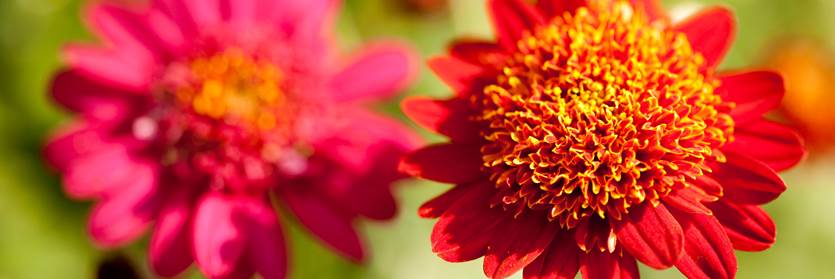Kids Dig Gardening at NYBG
Posted in Children's Education on June 15 2015, by Plant Talk
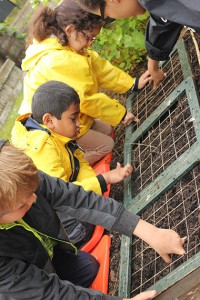
On a recent misty Saturday morning, I found myself boarding a Garden tram bound for the Ruth Rea Howell Family Garden along with 96 children enrolled in the Edible Academy’s Children’s Gardening Program for Crafters, an opportunity for kids ages six to 12 to experience gardening first-hand and to learn about the science behind plants and food.
Parents waved as their kids claimed their seats on the tram, one girl quickly asking whether her mom had packed her a change of clothes for later. She had, and told her daughter, “Have fun. Get dirty!”
The tram pulls away and steers us through low hills and around age-old trees until we arrive at the Family Garden. Eager children disembark and head toward the main garden gates, beyond which they gather with their small groups, divided by age.
It is in these small groups that they do special activities—learning about Gregor Mendel and plant genetics; writing in field notebooks they bound earlier in the program; and making crafts.
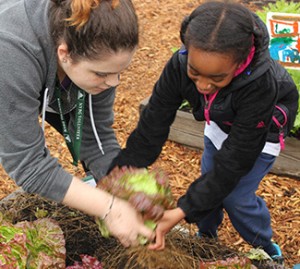
There’s a lesson on bees and how they organize their hives, complete with a honey tasting session with honeys made from the nectar of different plants, which creates different flavors. Another group practices completing Punnett squares to learn about genes the plants in their garden plots take on, while a table of kids nearby creates unique artwork using dried beans.
The groups rotate out into the Garden to tend their very own plots. The Crafters planted these vegetables earlier in the season and get to harvest some of them to take home and enjoy with their families. A teenage volunteer shows a group of younger girls how to harvest whole heads of lettuce—by making two “peace signs” with your fingers, and using them like levers to wiggle the root out of the ground. Boys sit on their foam garden kneelers in the mud and harvest chives.
Max Berger-Di Donato, a fourth-grader in Manhattan, has been active in the Children’s Gardening Program for seven years, asking his parents if he could go back again and again since his first year, at age three in the Sprouts Program.
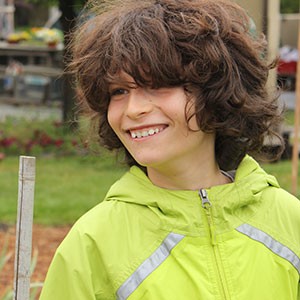
“I think it’s really interesting because of how things grow and what they need to survive,” Max said.
Max, who chose to become a vegetarian himself after learning at home where meat comes from, knows exactly where his vegetables come from and how to take care of them, too.
“You learn there’s a specific way to plant plants; it’s not just putting seeds in the ground and watering,” he said. “There’s a specific way for each plant.”
Even at such a young age, Max is aware of the importance of gardening for everyone.
“If there wasn’t gardening, it would be harder to go out into the wild to search for food,” he said. “Plus, gardening helps the world, and plants help us and the Earth.”
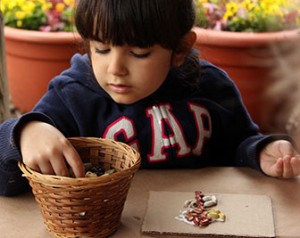
As a first-time visitor to the program, I’m impressed with Max’s knowledge and enthusiasm. He continues to explain the difference between dirt and soil and why radishes are his favorite to grow.
“They grow fast, and they’re good to eat,” he said. “It’s exciting because you’re looking forward to harvesting!”
Max, whose participation in the Children’s Gardening Program inspired his family to have their own plot in a community garden in the city, doesn’t get tired of gardening, despite all the time spent tending plants.
“I can’t wait for the summer Children’s Gardening Program,” he exclaimed.
The Summer Children’s Gardening Program begins in July. Six-week sessions are available for children ages 3–5, and 12-week sessions are available for children 6–12. Learn more about the program, and register by calling 718.817.8181 or by emailing childed@nybg.org.
